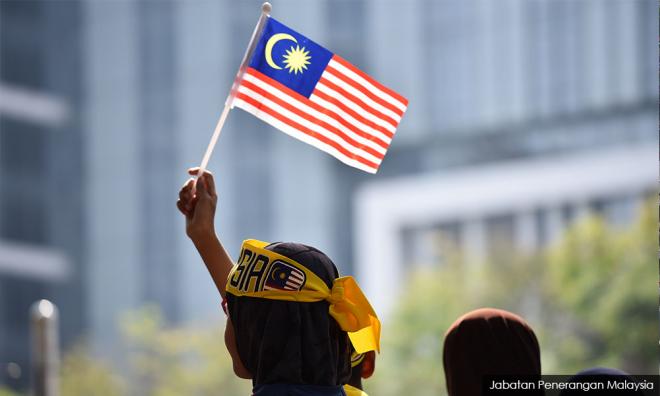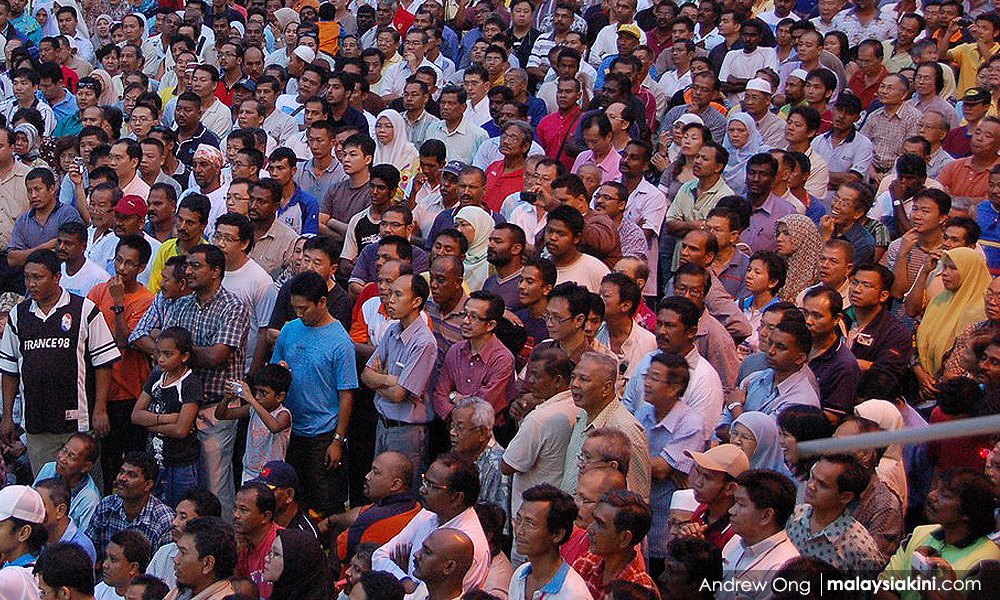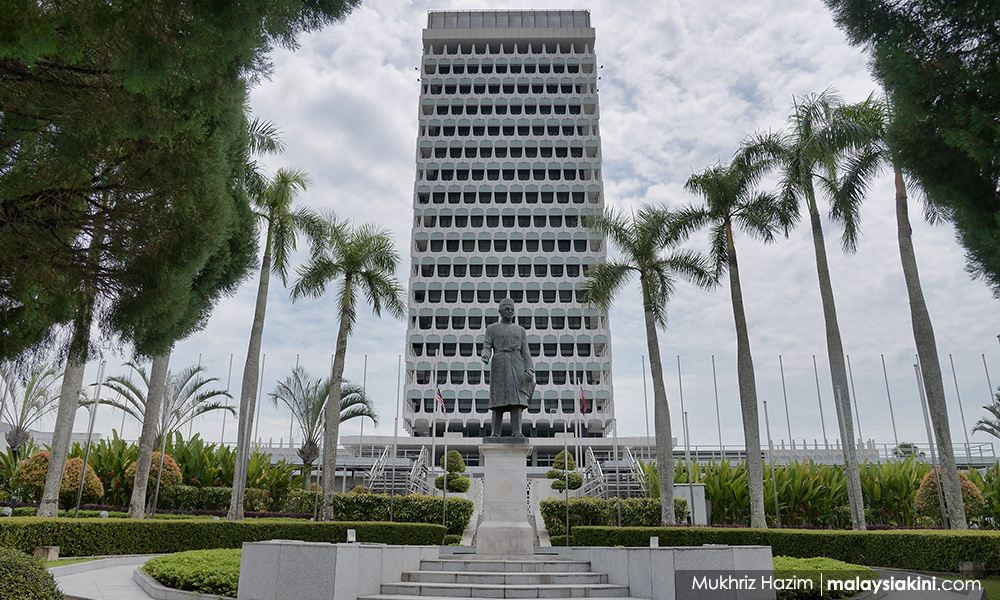
This year no parades. No national celebration. No hoopla and fanfare.
Merdeka Day has come and gone quietly. Of course, that is because of the pandemic and the need for social distancing. But perhaps just as well.
Many in the country are not in a celebratory mood. Many are in despair over the turn our politics has taken.
The coalition that now rules the country comprises those who believe in Malay supremacy and the need for Malays to dominate our politics. And those who believe that we must move towards an Islamic state and that non-Muslims should not be part of the government or hold key positions.
How on earth did we get here!
Why are non-Malays perceived to be a problem? Why is there this constant need to label non-Malays as orang asing or intruders? There was a time when we were happy being together.
A quick survey of our history may be useful.
The Portuguese colonised Malacca in 1511 and the Dutch took over Malacca in 1641 and the British assumed control in 1824. In 1786, the sultan of Kedah ceded Penang to the British and in 1819 the British through Stamford Raffles acquired Singapore from the sultan of Johor. In 1881, the sultan of Brunei ceded Sarawak to James Brooke who became Raja Brooke and in 1888, Brunei, Sarawak and North Borneo (Sabah ) became British protectorates.
What is important to know is that the gradual extension of British power and influence was really the result of British interaction with the Malay rulers. The British helped the rulers consolidate their power over the territories they ruled in exchange for lands and influence.
The Indians and Chinese played no role in the colonial process.
Early Indian and Chinese influence in the territories we now know as Malaysia was benign and limited to culture and trade. The Malay language and custom were heavily influenced by early contacts with Indians.
The sultan of Johor invited Chinese farmers into the country to grow spices, vegetables and other crops.

It was the British with the concurrence of the Malay rulers that brought Chinese and Indians here on a large scale. Most of the Chinese and Indians were brought into the country as indentured labour in the holds of ships. They were cheap labour prepared or required to work under very harsh conditions for exceptionally low wages.
The Indians were used to clear the jungles and provide the labour to establish and operate the plantations and to build the infrastructure of the country. The Chinese were the labour for the tin mines and the market gardens. Tens of thousands died of malaria, dysentery, and snakebite.
Many were also brought in from India, Sri Lanka and Mauritius and other places to work in the civil service, the police force, the army, the professions - lawyers, doctors, accountants, veterinary surgeons, valuers and surveyors and teachers.
Missionaries came in and set up schools mainly in the urban areas and provided education to tens of thousands of Malaysians.
The contribution of these people - the Chinese, Indians, Sri Lankans and missionaries - was positive. They took nothing away from the Malays. They together with the Malay elite and the British developed the infrastructure of a modern nation and prepared the country for independence.
Those who joined the police force and the armed forces served with valour and distinction. They fought the communists along with their Malay comrades. Many died.
In those days there were Chinese and Indian generals. The head of the navy was an Indian. Those in the civil service helped establish Malaya and later Malaysia at the forefront of developing nations.
The Chinese with their entrepreneurial flair along with many Indian Muslims helped set up wholesale shops throughout the country. All the skills required for a modern society became quickly available. Today we are the first world in the availability of most goods and services.
We have come a long way since independence. We have schools for all our children. We have hundreds of degree or diploma awarding institutions - including almost a hundred universities. Our health care services are rated as one of the best in the world. They have handled the pandemic brilliantly.
We have a well-drafted Federal Constitution, we have well-crafted laws, we have a democratic system that works reasonably well, we have independent, and experienced judges generally trained to high standards and we have a professional police force.
And yet something has gone wrong.

Recent events in our politics have caused many of us to despair. Party hopping, the proroguing of Parliament, the sacking of a good speaker and the appointment of MPs to GLC positions in place of qualified and experienced technocrats and the clampdown on activists are some of them.
We have become a racially and religiously polarised society. Race-based parties are still regarded as being necessary. And some Malay politicians promote the view that non-Malays are intruders or orang asing and that in some way their presence constitutes a threat to the Malays and Muslims.
In truth most Malays are quiet. They do not engage in the fierce rhetoric of race and religion. But unfortunately, there are a few politicians who stir up racial strife and division. Most Malays allow by their passivity preachers and racist politicians to vilify non-Muslims and non-Muslim religions.
Fortunately for all of us, the day to day relations between our people are excellent. On the ground, in offices and marketplaces, people intermingle freely. They joke and laugh with each other. They are courteous and polite in their interactions with each other. I am pak chik and uncle to everybody. My experience of our multiracial and multicultural diversity has been a gloriously happy one.
But we must be cautious, alert, and vigilant. And we must reject those who stir racial discord. We should make it clear to them that we welcome our diversity and rejoice in it.
The pandemic has also exposed deep fissures in our society. Deep-seated poverty is one of them. It is a big problem in Malaysia. A much bigger problem than previously realised or acknowledged. It cuts across all races. There must be a determined effort to help those who are poor. It must be a priority.
The position of Sabah and Sarawak is quite different from the West Malaysian states. They achieved their independence in September 1963 with the formation of Malaysia. Their status within the federation is governed by Malaysia Agreement 1963 and their respective agreements with the federal government which reserve their position on several issues.
The indigenous people of Sabah and Sarawak have as much claim to a privileged status as the Malays. And many are Christians. By all accounts, they enjoy their diversity better than we do ours.
Let Merdeka mean something good for all. More than anything else, Merdeka must mean freedom from poverty and freedom from fear.
DAVID DASS is a lawyer, a Malaysiakini subscriber and commentator. - Mkini



No comments:
Post a Comment
Note: Only a member of this blog may post a comment.